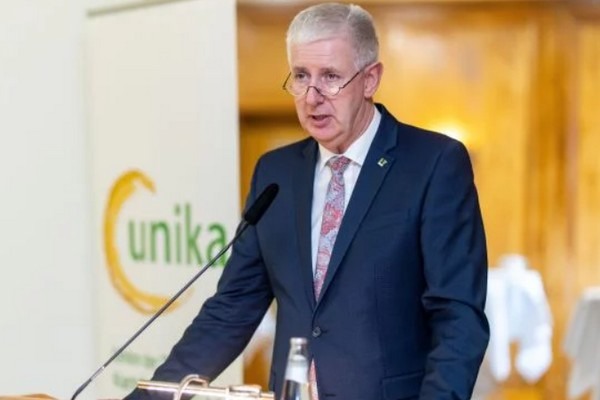At a meeting at the Federal Ministry of Agriculture, Olaf Feuerborn, chairman of the Union der Deutschen Kartoffelwirtschaft e. V. (en.: Union of the German Potato Industry; UNIKA) pleads for a holistic approach to contain the planthoppers and the bacterial diseases they transmit. The planthopper (Petanstiridius leporinus) has been spreading rapidly in numerous growing areas for several years and attacks potatoes, beetroot, and other vegetable crops.
At the same time, the host range is continuously expanding and threatens potato cultivation. The planthopper species can carry two pathogens, a stolbur pathogen, and a proteobacterium. Both bacterioses have the potential to cause massive losses in yield, quality, and storage, and even total crop failure of potatoes, a staple food.
"UNIKA is pleased that the Federal Ministry of Food and Agriculture (BMEL) recognizes the seriousness of the situation and that the Federal Minister invited the associations to a round table on Friday, 10 January 2025. We urgently need possible solutions to keep the affected crops, such as potatoes, in production. Nothing less than food security and the loss of regional cycles are at stake," said UNIKA chairman Olaf Feuerborn (pictured below) after talks at the BMEL.

Short, medium, and long-term measures
Feuerborn believes that a strategically coordinated bundle of measures is needed to ensure that the domestic supply of potatoes, which exists today, is secured for the future. "A reduction to agronomic or breeding measures is not enough to counter the existential threat to potato growers and to secure the raw material for the downstream sectors," the chairman explained. "A holistic approach requires short-, medium- and long-term measures, especially in areas where the planthopper species does not yet occur," Feuerborn demanded.
In his statement at the BMEL, the chairman emphasized that the potato industry has already launched research projects on its own initiative. More research funding is needed here to answer key questions and to derive courses of action from them. To protect the regions in the short term, all possibilities in the field of plant protection must also be utilized. An adjustment in the conditionality of the Common Agricultural Policy is necessary to test and optimize all agronomic measures so that the steadily increasing population of planthoppers can be contained.
Staple food potato at stake
Ernst-Rainer Schnetkamp, Deputy Chairman of the Bundesverband der obst-, gemüse- und kartoffelverarbeitenden Industrie e. V. (en.: Federal Association of the Fruit, Vegetable and Potato Processing Industry, BOGK), underlined the importance of domestic potato cultivation for the processing industry. "The processing companies use more than half of the potatoes produced in Germany to produce high-quality food. These quantities cannot be replaced by other regions of origin," said Schnetkamp.
The associations UNIKA and BOGK emphasized that food security with the domestic staple food potatoes must not be put at risk and offered the BMEL once again any technical support in the fight against the carriers of the bacterioses during the meeting on 10 January 2025.
For more information:
www.bogk.org/
www.unika-ev.de/










